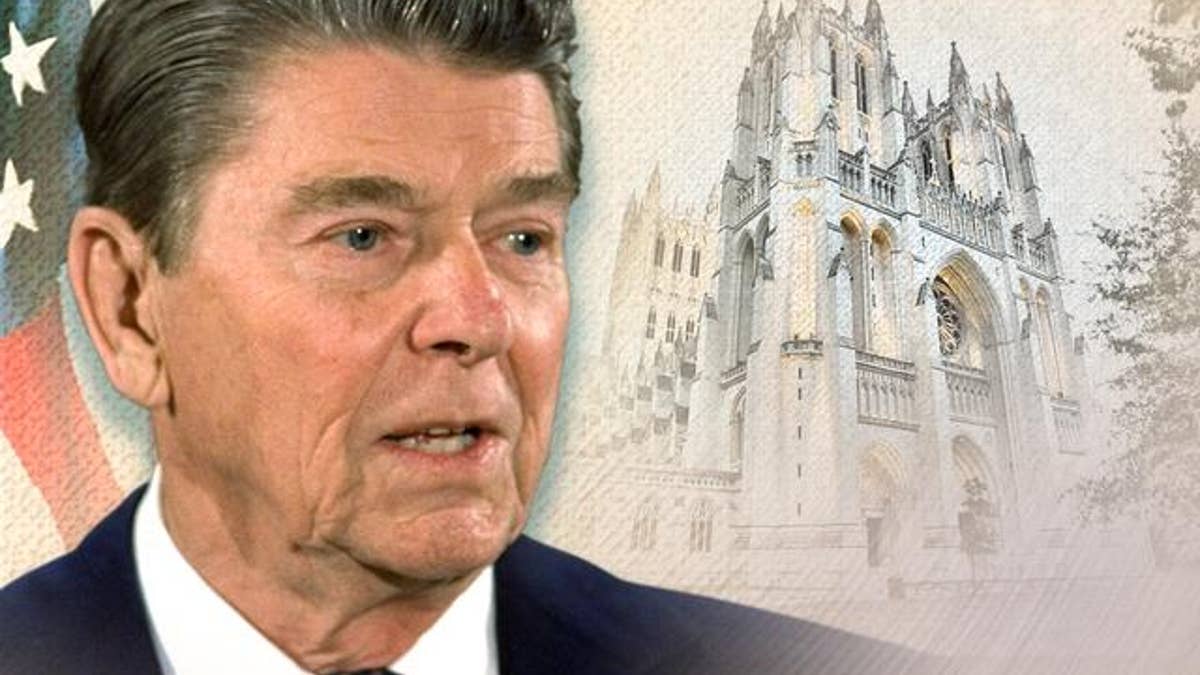
President Ronald Reagan. (AP)
Thirty years ago today Ronald Reagan delivered a speech before the British Parliament that was to become known as the “Westminster Address.” Calling a spade a spade, he summoned courageous language, startling those intimidated by communist aggression. He bravely predicted the demise of communism, the first time an American president had so strongly criticized their system. In the past, a few American presidents had criticized Soviet behavior. They had said we don’t really care what your system is; you can have what you like. Just don’t come after us.
Until June 8, 1982, that is.
“The march of freedom and democracy,” Reagan declared, “will leave Marxism-Leninism on the ash-heap of history as it has left other tyrannies which stifle the freedom and muzzle the self-expression of the people.”
He knew the Soviet system ignored the happiness and well-being of their citizens because their power and their privileges rested in the subjugation of their people. Watching events unfold in Poland as the Solidarity movement was crushed, President Reagan recognized that the Soviet nomenclatura, a class of privileged officials, simply could not – and would not -- allow their people the kind of freedoms that we enjoy.
And it was time someone said it. Tell them that you can’t promote freedom, individualism, and the rule of law while condoning oppression.
In his memoirs about his approach to the Soviets, Reagan wrote: “I told [Secretary of State] Al Haig to tell [Soviet Ambassador to the United States Anatoly] Dobrynin there was new management in the White House.”
[pullquote]
That’s only part of the story. The historic speech offered more. The president called upon Western allies to encourage democratic developments, in effect constituting a “crusade for freedom.” He urged, “Let us move toward a world in which all people are at least free to determine their own destiny…”
As Reagan biographer Lou Cannon wrote later, the Western press derided the Westminster Address as “wishful thinking, bordering on delusional.” The Soviet propaganda newspaper Pravda reported that Reagan and his cult of “latter-day crusaders” had evil intentions toward the Soviet empire. The communists claimed he was trying to undermine socialism. That’s one thing they were right about.
In the archives at the Ronald Reagan Presidential Library, numerous drafts of the speech by Tony Dolan and the State Department, sporting President Reagan’s massive edits, are preserved. What is fascinating is the evolution of the words that came to fill the four corners of the document with such powerful ideals; ones that I am sure will outlive us all. One has to smile when they look upon the carefully written, forceful, and knowing thoughts penned by the steady hand of Ronald Reagan as he set about the task of ensuring the speech said EXACTLY what he wanted to convey.
He spent a month working on the historic remarks. He traded draft after draft with staff who at varying times called upon the ideas of Madison, Jefferson, Lincoln, Churchill, Eisenhower and Truman to evoke the images they were after. In the end, the speech was pure Reagan. In all the back and forth, in all the competing voices as to what the President should say, the signature words, the signature call for a “campaign for democracy,” survived every draft at President Reagan’s insistence.
A year after President Reagan left office the Berlin Wall came tumbling down. Ten years later, his “delusional” ideas about communism proved to be true. As the Soviet system crumbled, Harvard University Press published in 1999 The Black Book of Communism documenting horrors beyond anyone’s comprehension, how terror was always one of the basic ingredients of modern communism where a multitude of crimes not only against individual human beings, but also against civilization and national cultures were committed.
What does this mean for today? Who will stand and promote freedom? Is freedom on the offensive today? A Russian war correspondent, terrorized by the KGB wrote, “Our century is the century of the greatest violence ever committed against human beings by the state. But it is precisely here that the strength and hope of humanity lie.” For the 21st century, the immediate challenge lies in securing freedom for millions living in Afghanistan, Egypt, Tunisia, Libya, Yemen, Syria, Iran, and, of course, North Korea.
In 1982, President Reagan understood that simply protecting freedom was not enough. Calling for a bold effort to advance freedom, our 40th president set the wheels in motion to end the Cold War. He was “putting freedom on the offensive,” commended Prime Minister Thatcher, “where it belongs.”
John Heubusch is the Executive Director of the Ronald Reagan Presidential Foundation
